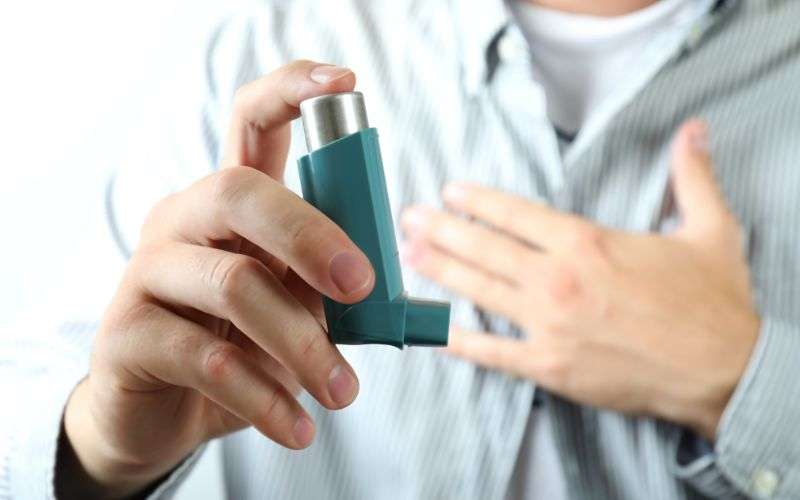Bronchial Asthma Treatment

Understanding Bronchial Asthma and Its Treatment
Bronchial asthma, commonly referred to as asthma, is a chronic respiratory condition characterized by inflammation and narrowing of the airways, leading to difficulty in breathing. This condition affects millions worldwide, including many residents of Bangalore. Dr. Yasmin Imdad, a renowned gynecologist at Mom and More Clinic, provides comprehensive care and bronchial asthma treatment.
What is Bronchial Asthma?
Bronchial asthma is a condition where the bronchial tubes, which carry air to and from the lungs, become inflamed and narrowed. This leads to episodes of wheezing, breathlessness, chest tightness, and coughing. These symptoms can vary from mild to severe and can significantly impact the quality of life if not properly managed.
Causes and Triggers
Understanding the causes and triggers of bronchial asthma is crucial for effective management. Common triggers include:
- Allergens: Pollen, dust mites, pet dander, and mold.
- Irritants: Tobacco smoke, air pollution, and strong odors.
- Respiratory Infections: Common colds and other respiratory infections.
- Physical Activity: Exercise-induced asthma.
- Weather Conditions: Cold air and sudden weather changes.

Symptoms
The symptoms of bronchial asthma can vary significantly from person to person, and they can range from mild to severe. Recognizing these symptoms early is crucial for effective management and bronchial asthma treatment. The most common symptoms include:
- Shortness of Breath: This is a primary symptom of asthma and can occur either suddenly or gradually. It often becomes more noticeable during physical activity or at night.
- Wheezing: A high-pitched whistling sound made while breathing, especially when exhaling. Wheezing is caused by the narrowing of the airways and is a common indicator of asthma.
- Chest Tightness: Many individuals with asthma describe a feeling of pressure or tightness in the chest. This sensation can be uncomfortable and sometimes frightening.
- Chronic Coughing: Persistent coughing, particularly at night or in the early morning, is another hallmark of asthma. This cough can be dry or produce mucus and is often exacerbated by respiratory infections or exposure to allergens.
These symptoms can be triggered or worsened by various factors, including allergens, irritants, physical exertion, and respiratory infections. If you experience any of these symptoms, it is essential to consult with a healthcare professional for a proper diagnosis and appropriate bronchial asthma treatment.
Diagnosis
Dr. Yasmin Imdad emphasizes the importance of accurate diagnosis for effective treatment. Diagnostic methods include:
- Medical History: Detailed patient history to identify patterns and triggers.
- Physical Examination: Checking for signs of asthma or other conditions.
- Pulmonary Function Tests: Measuring lung function to assess the severity of asthma.
- Allergy Testing: Identifying specific allergens that may trigger asthma symptoms.
Treatment Options
Treating bronchial asthma involves a combination of medications, lifestyle changes, and ongoing monitoring. Dr. Yasmin Imdad offers a comprehensive approach to bronchial asthma treatment:
Medications
- Long-term Control Medications: These include inhaled corticosteroids, leukotriene modifiers, and long-acting beta-agonists. They help reduce inflammation and prevent asthma attacks.
- Quick-relief Medications: Also known as rescue inhalers, these medications provide immediate relief from acute asthma symptoms. They include short-acting beta-agonists and anticholinergics.
Lifestyle Changes
- Avoiding Triggers: Identifying and avoiding asthma triggers is essential. This may involve using air purifiers, avoiding smoking, and staying indoors during high pollen days.
- Regular Exercise: Engaging in regular, moderate exercise can strengthen the respiratory system and improve overall health.
- Healthy Diet: A balanced diet rich in fruits, vegetables, and omega-3 fatty acids can help reduce inflammation and boost the immune system.

Preventive Measures
Preventing asthma attacks is a critical component of asthma management. Dr. Yasmin Imdad advises patients on several preventive measures:
- Adhering to Medication Plans: Consistently taking prescribed medications even when symptoms are not present.
- Regular Check-ups: Routine visits to monitor lung function and adjust treatment plans as needed.
- Asthma Action Plan: Developing a personalized asthma action plan to manage symptoms and respond to emergencies effectively.
Actionable Tips for Asthma Management
- Use a Peak Flow Meter: Regularly monitoring your peak flow can help detect early signs of an asthma attack.
- Maintain a Symptom Diary: Keeping track of symptoms and triggers can help identify patterns and improve management.
- Stay Informed: Educating yourself about asthma and staying updated with the latest treatments and management strategies.
Why Choose Mom and More Clinic?
Choosing the right clinic for bronchial asthma treatment is crucial for effective management. Here’s why Mom and More Clinic is an excellent choice:
- Expertise: Dr. Yasmin Imdad is a highly experienced gynecologist with extensive knowledge in managing bronchial asthma. Her expertise ensures accurate diagnosis and effective treatment plans.
- Comprehensive Care: The clinic offers a holistic approach to asthma management, including medication, lifestyle advice, and preventive measures.
- Patient-Centered Approach: At Mom and More Clinic, patient care is a top priority. The team is dedicated to providing personalized care tailored to each patient’s needs.
- Advanced Facilities: The clinic is equipped with state-of-the-art facilities and the latest technology to ensure high-quality care and effective treatment outcomes.
- Supportive Environment: The friendly and supportive environment at Mom and More Clinic helps patients feel comfortable and confident in their treatment journey.
Conclusion
Bronchial asthma requires a comprehensive approach to management, involving medication, lifestyle changes, and regular monitoring. Dr. Yasmin Imdad at Mom and More Clinic in Bangalore is dedicated to providing personalized care to help patients manage their asthma effectively and lead healthier lives.
Frequently Asked Questions (FAQs)
Early signs of bronchial asthma include frequent coughing, especially at night, shortness of breath, wheezing, and chest tightness. If you experience any of these symptoms, it is important to consult a healthcare professional for a proper diagnosis.
There is currently no cure for bronchial asthma, but it can be effectively managed with medications and lifestyle changes. Many people with asthma lead normal, active lives with the right treatment plan.
Diagnosis typically involves a combination of medical history, physical examination, pulmonary function tests, and allergy testing. These methods help healthcare providers determine the presence and severity of asthma.
If you experience an asthma attack, use your quick-relief inhaler immediately. Follow your asthma action plan and seek medical attention if your symptoms do not improve or worsen.
While some children may experience a reduction in asthma symptoms as they age, asthma is generally a lifelong condition. Regular monitoring and management are essential to control symptoms and prevent complications.